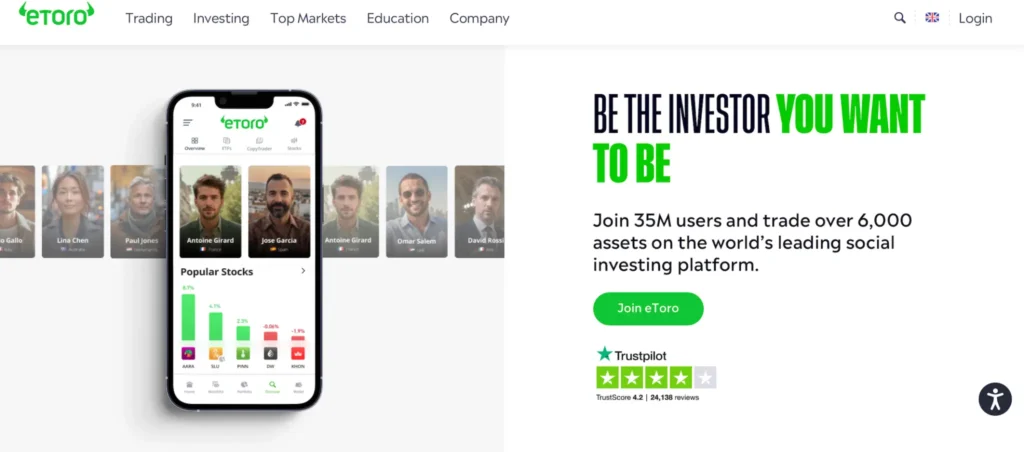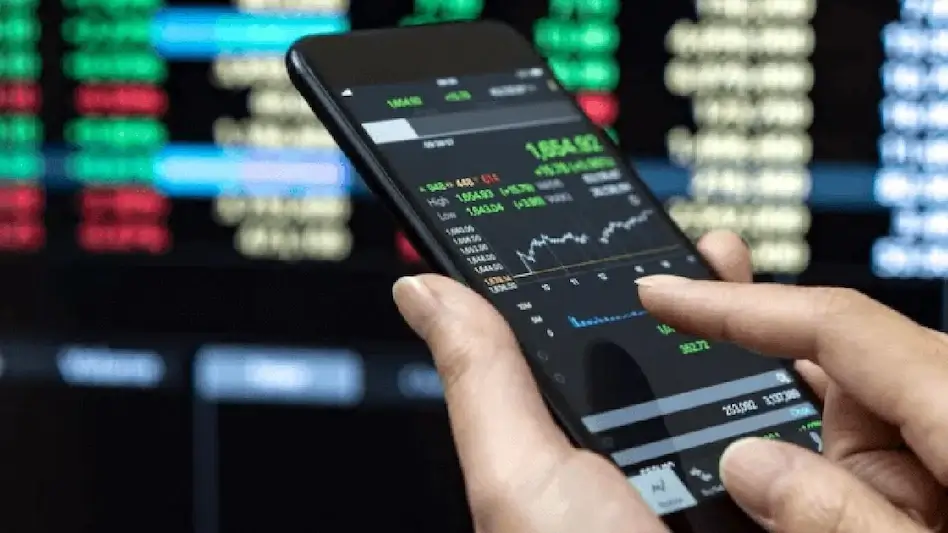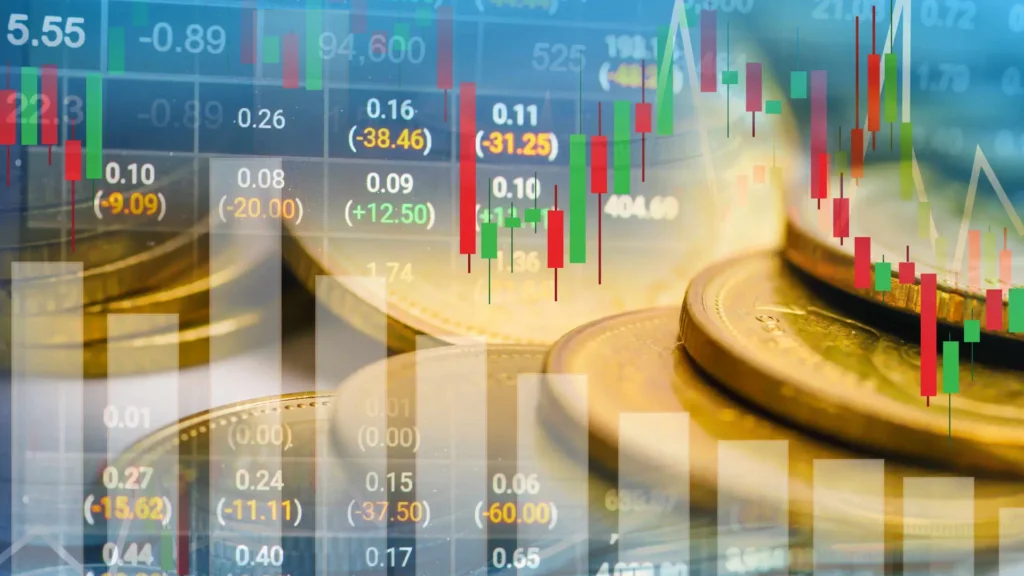Disclosure: Privacy Australia is community-supported. We may earn a commission when you buy a VPN through one of our links. Learn more.
How to Buy International Shares From Australia: A Comprehensive Guide for Aussies
If you’re looking to invest, there are plenty of options out there. But if you’re a beginner, the whole thing may seem overwhelming. In that case, you simply need to start slow and learn as much as possible. That is where our guide on how to buy international shares comes in useful

You might not be aware, but as of July 2023, 40% of the global market capitalization was made up of US stocks. That’s a lot! And you can clearly see that focusing on only one market could mean you miss out. By becoming a global investor, you’ll have far more opportunities to take advantage of.
TL;DR
- International shares offer diversification and access to global growth opportunities.
- Choose a reliable trading platform with competitive fees and comprehensive market access.
- Understand tax implications, including dividend withholding taxes and capital gains.
- Manage risks through diversification and currency hedging strategies.
- Consider alternative options like ETFs or managed funds for easier international exposure.
- Stay informed about regulatory requirements and global events affecting international markets.
- Explore advanced strategies and future trends to enhance your international investing approach.

Trading in international shares builds your trading confidence.
Understanding International Share Markets
If you’ve ever seen a movie that involved any US stock exchange, you’ll understand how bustling and busy it is. That’s for a reason: International stock markets are big business and contain plenty of opportunities to make money. Worldwide, each share market has its own unique quirks, and understanding them gives you a headstart.
We’ve got the New York Stock Exchange (NYSE), NASDAQ, the London Stock Exchange (LSE) and Asian markets in Shanghai and Tokyo. Of course, when you’re based in Australia, the trickiest thing is time zones. Knowing when the markets are open is important to avoid missing a profitable opportunity. Yes, that means setting your alarm at odd times!
However, trading in international share markets is useful because it allows you to diversify your portfolio.
Market Capitalization and Global Representation
As you learn about buying international shares, you’ll learn a lot of terms. One of them is market capitalization.
Basically, marketing capitalization is a company’s value when it is traded on the stock market. This number is calculated by taking the total number of shares on the market and multiplying it by the current share price. Market capitalization will fluctuate as prices change, but it gives a good indicator of what a company is worth.
As for global representation, this is an important concept to understand. More than half of the world’s market capitalization is outside the US. That means plenty of potential for Australians to tap into!
Developed vs Emerging Markets
In international investing, there are two main elements: developed markets and emerging markets. As the name suggests, developed markets are the ones that are pretty established, such as the US, Japan, and UK. Their stability is attractive because it seems like less risk, but they may not give you the greatest returns. Emerging markets offer opportunities for big money, yet with higher risk. Here, we’re talking about countries like India, China, and Brazil.
Choosing between developed and emerging markets is about balancing your financial goals with your risk tolerance.
Currency Considerations
When you’re dealing with international markets, you also have currency exchange to throw into the mix. This means you’re not only dealing with share price fluctuations but also currency changes. For example, a weak US dollar is good news for some but bad for others. It really depends on the currencies you’re dealing with.
If this is a little confusing right now, don’t worry. We’ll cover a few key strategies to deal with this later on.
Choosing an International Share Trading Platform
One of the first decisions you need to make when learning how to buy US shares is to choose a trading platform. It needs to suit your needs, budget, and style. There are countless options out there, and they all have their own pros and cons. Some platforms have low fees but don’t have great features. Others have moderate fees and a range of features. It’s about doing your research and finding the best fit.
It’s also vital that you concentrate on security features, as keeping your cash safe is key. Look for features such as password protection for trading accounts, to secure all your data.
A notable platform is eToro. This company offers many features for beginner and advanced traders, along with top-class security and reasonable prices.
Brokerage Fees and Commission Structures
Fees are something you need to play close attention to. After all, high fees can eat into your gains. Brokerage fees can be complex, but to break it down, there are flat fees and percentage-based commissions. Occasionally you’ll see a combination of both.
When choosing a broker, make sure that you take the time to explore their fee structures. These vary from broker to broker and also depend upon the type of account you sign up for.
It’s also a good idea to keep an eye on different brokers even when you find a good fit. Just as you can switch utility suppliers, you can also switch brokers. Recent Finder research discovered that traders can save around $1048 in fees by switching. It certainly pays to keep your eyes open.
Foreign Exchange Fees
We touched up on the idea of currency exchange a little earlier but this also fits in the ‘fees’ category. When you change from currency to currency, you’ll incur forex fees. That means you need to factor your costs into your trading, so you don’t lose out without realising it.
Market Access and Available Instruments
All trading platforms of their own features and tradable instruments. Again, these vary from broker to broker. That’s why knowing your aims is important before you make a decision.
All trading platforms offer a range of tradable instruments, such as forex, shares, ETFs, options, and cryptocurrencies, but they vary. For instance, some brokers don’t offer cryptocurrency. That will be an issue for you if you find out later and want to delve into the digital currency realm.
It’s important to have a broad market approach when you’re investing internationally. This gives you more flexibility and opens up more opportunities. So, compare market access via different platforms and find your best fit.
Research Tools and Resources
Doing your homework is one of the most important things when you’re trading, either domestically or internationally. After all, this is your hard-earned cash we’re talking about.
A good trading platform will offer a wealth of research tools. It should help you to make good decisions and allow for flexibility. Real-time data is just the starting point, but also detailed company reports, and analytical tools. For instance, eToro offers a copy trading tool, so you can emulate the strategies of successful traders. This is a valuable research and learning tool.
Many brokers also dedicate themselves to educational resources, helping beginners to develop their skills. However, these are useful even if you’re experienced – nobody is above learning something new!
So, this is another aspect to look at when choosing a trading platform and broker.
Real-Time Data vs Delayed Quotes
One thing you will quickly realise is that share trading is fast-moving and you have to jump with certainty. There is no room for hesitation. That means you need up-to-date information to help you make decisions. Here, we’re talking about real-time data, but delayed quotes can also be useful.
As the name suggests, real-time data is an update of what is happening right now. However, delayed quotes give you a picture of where a share stood around 20 minutes ago. It might sound like delayed quotes aren’t useful but it really depends on the market and the business. Some traders prefer a ‘buy and hold’ strategy and in this case, delayed quotes work quite well, without causing overwhelm.
Again, it’s about finding the best fit for you.

eToro is a popular trading platform for beginner and advanced traders.
Steps to Buy International Shares from Australia
Now it’s time to get practical! You know what international share trading is, now you need to know how to buy shares from Australia.
Let’s walk through it step-by-step.
Opening an International Trading Account
Your first step is to find a broker and open an international trading account. Many Australian brokers offer this service, but it’s important to research this ahead of time. Once you find the best fit, you’ll need to sign up, verify your identity, and wait for approval. Overall, this shouldn’t take more than a few days, and then you can start trading.
Identify verification involves a form of ID, proof of address, and possibly a bank statement, if requested. Some brokers might even ask you to take a photograph holding your ID. It’s not a complicated process, but it’s vital for your security.
At Privacy Australia, we understand that finding a broker can be confusing and even daunting. That’s why we have a strict review process for brokers so we’re giving you the best advice. Check out our broker reviews to help you make an informed decision.
Funding Your Account
Before you can start trading with your new account, you need to add some funds. Most brokers ask for a minimum of $100 for a trade, but this does vary across brokers. Again, research is key. How you top up your account also varies, with options such as bank transfer, debit/credit card, and PayPal.
Multi-Currency Accounts
Applying for a multi-currency account is a good idea if you want to trade internationally. This allows you to hold balances in different currencies. The plus point here is that you can avoid forex fees; for example, you can buy US shares with USD. That way, you don’t get a currency charge.
Executing Your First International Trade
Making your first trade is an exciting, and sometimes nerve-wracking experience. Moving slowly is key the first time, and you can build up your speed and confidence from there.
First you’ll need to choose the company you want to invest in. Do some research beforehand so you know you’re backing a winner. Then, decide how many shares you want and select your order type.
Let’s talk about your options before you hit the ‘buy’ button.
Order Types and Execution Strategies
We mentioned ‘order types,’ so let’s talk about what they are. First, you’ll encounter market order. This is what you want to purchase. Then, you have the limit order. Here you decide how much you’re willing to pay and define a maximum amount. Consider it a little like haggling at a market. Next, we have stop orders. These are a type of safety net you can ask your broker to stop any order, at any time.
Each order type allows you to make sensible decisions without undue risk. Working with these types and experimenting according to your preferences helps you become a savvy investor.
Tax Implications of International Share Investing
We cannot get away from the tax issue, so let’s delve into this now.
When purchasing shares internationally, you will need to deal with international tax laws and treaties. Remember, if you’re unsure about anything, you should reach out for financial advice. It’s a better option than potentially breaking a tax law and ending up in hot water.
Dividend Withholding Taxes
When you receive money from your international shares, you’ll lose a little off the top. This will be taken due to the laws of the country the company is based in. It’s unavoidable. However, Australia has tax treaties with many countries which means that you won’t lose quite as much.
Claiming Foreign Tax Credits
Here is some good news. When you pay withholding tax to another country, you can claim a tax credit on your Australian tax return. That means, you’re not being double taxed and you get back what you paid at a later date. However, to do this, you need to keep all your paperwork to prove what you’ve paid.
Capital Gains Tax on International Shares
Another tax is capital gains taxed. When you sell your international shares for a profit the Australian Tax Office (ATO) will want their portion. However, to do this, you need to calculate how much you earned in Australian dollars. This applies even if you bought the shares in a foreign currency.
However, the good news is something called Capital Gains Tax Discount. If you keep your shares for another 12 months, you may end up with a discount on your tax bill.
And don’t forget about the CGT discount. If you own an asset for 12 months or more (including shares) you may qualify for a 50% discount on your tax bill. Again, a financial adviser will be able to help you with this.
Currency Gains and Losses
When dealing with foreign currencies, there is a chance of gaining and losing in equal measures. Not only are you investing in the performance of a company but you’re also at the mercy of the exchange rate. That means you could earn big on your shares but lose out on the US to AUS dollar rate.
There’s more good news here, however. The Australian Tax Office considers currency fluctuations as part of your capital gains or losses. So, you gain back what you lose, albeit later on. Of course, the key to this is proper record-keeping.

Buying international shares from Australia opens you up to the global market.
Risk Management in International Share Investing
Whether you’re investing in domestic shares or international ones, there is always an element of risk involved. You could argue that’s what keeps it so exciting. However, you can reduce how much risk you’re dealing with thanks to risk management.
Diversification Across Markets and Sectors
One way to manage risk is to diversify your portfolio. This basically means you’re not putting all your eggs in one basket. By spreading your portfolio across different areas, you’re not going to lose everything if one goes under.
Diversification can be as simple as spreading your investments across different tradable instruments or companies. However, it can also mean spreading them across countries too.
Country-Specific Risks
The world is a confusing place sometimes and politics and economics come into play. That means when you’re investing internationally, you also need to think about country-specific risks. After all, political instability, regulatory changes, and economic crises can impact your investments. For instance, think about Brexit in the UK, or the economic crisis in Greece a few years ago. These events affect the markets and can make your investments crash.
You can’t avoid these things without a crystal ball. However, you can manage risk by staying up to date and, as before, using diversification.
Currency hedging is another great insurance strategy against risk. Fluctuations in currencies can hit your investments hard but hedging strategies can protect you to a degree.
You won’t make quite as much but you will be protected. ETFs are a one way to use currency hedging.
Alternative Ways to Gain International Exposure
It’s true that jumping straight into the global market can be scary at first. However, you can start slowly, with brokers like eToro offering many options. IC Markets is another good broker to look into for this reason.
Let’s take a look at a few ways you can get your feet wet:
International ETFs and Managed Funds
International ETFs are a great starting point. They allow you to gain instant diversification without too much risk. Managed funds are another option. Here, a professional advises you on what moves to make, without having to do the homework yourself.
Thematic and Sector-Specific International Funds
You could also look at thematic and sector-specific international funds. This means you invest where your knowledge and interests lie. So, if you know a bit about the tech world, you can invest there. If you’re interested in energy efficiency, you can move your attention to that sphere. There are funds in all areas and you can use your know-how to diversify your portfolio.
Contracts for Difference (CFDs) on International Shares
CFDs allow you to understand the price movements of a share without actually owning it. They can help you make diversified moves, but they can also lead to greater losses. This is because when you make a move, you’ll always end up buying higher than the market value. Also, when you sell it on, you’ll end up selling just below the market value.
Popular International Shares for Australian Investors
Some share types are more popular than others. It’s interesting to find out what other Australian investors gravitate toward, and it’s true that US tech companies are in demand. That means you can own a small slice of a huge company. But you don’t have to stop there.
Tech Giants and FAANG Stocks
FAANG stands for the first letter of some of the biggest companies in American tech. We’re talking Facebook, Apple, Amazon, Netflix, and Google. As you can imagine, many Australian investors have FAANG stocks in their portfolio, and with good reason: they perform. However, just because they’re big names doesn’t mean they don’t have glitches that affect their market value. For that reason, diversification is key.
The reason these huge tech companies are so popular is that they have huge growth potential. They also constantly focus on innovation. There really are no limits to what these companies can achieve.
Dividend Aristocrats
Dividend aristocrats aren’t quite as exciting but they perform consistently. These are companies that have increased their dividends over the last 25 years. So, they’re reliable. If you’re focused solely on income (who isn’t), these are very attractive stocks to have. However, just because they’re reliable doesn’t mean they never experience hard times. So, don’t put all your eggs in the aristocrat basket.
Yield Comparison with Australian Shares
With all this talk of international investing fun, it’s easy to forget there are some high yield opportunities at home. It’s a good idea to diversify domestically and internationally here. However, just because international shares may have lower dividends, they’re still worthwhile. The Australian market may hit a speedbump from time to time and going international may help you smooth that out.
For that reason, it’s a good idea to balance the two.
Emerging Market Leaders
Investing in emerging market leaders can be a risky business, but it can also lead to huge gains. These are companies that may not be household names yet but they have the potential to be. Such companies are often based in places like Brazil, India, and China.
These markets can often grow very fast but, as always, there’s a chance of crashing. In fact, it’s higher because they’re not established. Despite that, the gains can be significant.
If you choose to invest in emerging markets, just know that they’re unpredictable. That means you need to diversify your portfolio to manage risk. Political instability can be an issue in these areas, as well as currency fluctuations, and regulatory changes.

There are different types of international shares you can invest in.
Regulatory Considerations for International Share Trading
When you cross international borders, there are regulations to deal with. The same goes for share trading globally. Here in Australia, you have ASIC regulations but when you go into another market, you have their regulations too. Reporting regulations and compliance can be tricky and it’s important to keep solid records.
The most important thing to remember is that if you make a wrong move, ignorance won’t save you. Financial regulations need to be adhered to.
ASIC Regulations on International Investments
In Australia, ASIC is the financial watchdog, especially for Australians trading overseas. Its regulations help you to make informed decisions and stop you being taken advantage of by unscrupulous beings.
ASIC requires brokers offering international shares to be properly licensed. They also need to provide information about risks. Overall, this gives you a safety net, but it doesn’t stop you from making poor choices. ASIC can only do so much!
Compliance with Foreign Market Regulations
Complying with foreign market regulations is vitally important. However, it can be overwhelming because these regulations can be totally different to what you’re used to. Every market has its own rules and you need to abide by them as a visitor. Regulations can be anything from reporting large shareholdings to complying with local tax laws.
Of course, some market regulations may be more relaxed than others. For that reason, it’s important to do your homework before agreeing to anything.
Reporting Foreign Investments
In Australia, you are required to report certain foreign investments to the ATO. So, it’s important to get advice from a financial advisor to ensure that you’re not missing anything. Generally speaking, if you own a large stake in a foreign country or you have offshore assets, report it. Not doing so will land you in very hot water. In fact, if you’re not sure if you need to report your investments or not, seek advice regardless.
Anti-Money Laundering and Counter-Terrorism Financing (AML/CTF) Requirements
When you’re investing internationally, you’ll notice that there are more identity checks than usual. This is because there is a real focus on ensuring that everything is fair, safe, and secure. It’s for your own benefit, so while it’s time-consuming, it’s worthwhile.
In an effort to keep the global financial system clean, you may need to explain a few things. This could be where your money comes from, or prove/justify large transactions.
Advanced Strategies for International Share Investing
You know the basics, now it’s time to kick it up a notch.
In this section, we’ll cover strategies like global sector rotation, pair trading, and options on foreign stocks.
Global Sector Rotation
Global sector rotation means that you move your investments between different sectors and countries. You do this based on where you think the next big performance will land. Of course, to do this, you need to be informed about markets, and this means plenty of research. It can be tricky, but when done correctly, it can lead to big gains.
For instance, if you see that tech stocks are really booming, you might invest in several. However, when the tech economy seems to be a little shaky, you’ll switch to another sector.
Pair Trading Across International Markets
Another advanced strategy is pair trading across international markets. Basically, you’re looking for two stocks that match one another and work well, but they’ve temporarily fallen out of step. You go long on one stock and short on the other with the assumption that they will fall back into step. An example is to pair stocks from different countries in the same market.
This strategy requires work and patience. You’ll need to watch the market and have a good eye for what is going on. However, it’s a gamble because sometimes relationships between shares change and don’t return to their former harmony.
Arbitrage Opportunities
Arbitrage opportunities certainly require a keen eye. Here, you’re looking for very small discrepancies in price. When you see one, you jump in before anyone else. Then, you make a profit.
An example could be noticing price differences for the same stock listed on different exchanges. If you jump in before anyone else, you benefit. The downside is that actually spotting a discrepancy is quite rare. Also, trading algorithms execute trades so fast these days that actually spotting an opportunity is extremely challenging.
Yet, if you spot one, you could win big.
Options and Derivatives on International Shares
Another strategy is using options and derivatives on international shares. This is a route that offers real highs but the potential for major lows. These both allow you to speculate on price movements without owning them. You can watch the market, think ahead, and dive in. But remember, these are complex strategies that, in some cases, may end in disaster.
Impact of Global Events on International Share Investing
Things happen, and those things can affect the share market. How many times have you seen something on the news, then hear the stock market is in freefall? Sometimes there are warning signs and you can make a move, other times it all comes out of the blue. Nobody could have predicted the COVID-19 pandemic, yet geopolitical tensions often simmer before anything happens.
When you’re dealing with international stocks, you need to keep a close eye on the news. You also need to understand how events impact different regions and sectors.
Trade Wars and International Relations
From time to time, countries have trade spats and they drastically affect stock prices. Let’s take the US and China, for example. These two giants often spar, and when they do, the stock markets wait and see. If an issue is over technology, you may find that international tech shares are affected, yet domestic manufacturing booms.
Issues can also arise over something as small as a tweet. Again, it’s about knowing what’s going on in the world and assessing carefully. Diversify your bets, and perhaps invest in a crystal ball.
Global Pandemics and Health Crises
The COVID-19 pandemic certainly taught us to expect the unexpected. Lockdown turned the world upside down quite literally and paused the global economy. However, the stock market continued on, and some sectors even flourished. Amazon did very well during the pandemic, as well as other ecommerce companies. However, the travel and hospitality sectors were left floundering.
Our world may be vast but an event in one country can drastically affect stock markets on the other side. While we can’t predict a lot of it, managing risk, diversification, and staying as informed as possible is key.
Climate Change and ESG Considerations
When talking about ESG, we mean environmental, social, and governance factors. Climate change is certainly a big element of that and it can affect the stock market too.
Companies worldwide now understand that they need to do their bit for the environment and treat their employees properly. Failure to do so can easily go viral, causing a drop in their share prices. However, it’s important to check that companies are actually doing what they say they are. Greenwashing is a real thing. Therefore, it’s a good idea to dig deep and do some homework before choosing who to invest in.

Global events and future trends will affect international share prices.
Future Trends in International Share Investing
Looking into the future gives us an idea of how the international share market might change. There are many emerging trends which will impact the global market in some way. Learning about them is useful for making decisions on which investments take on.
One emerging trend is blockchain technology, which looks set to revolutionise how we trade and settle international shares. On top of that, artificial intelligence (AI) is sure to make waves, helping us choose investments in an instant.
Another emerging trend is the rise of fractional shares and tokenization. This is likely to make the price of international stocks more accessible than they’ve ever been before.
We can also talk about algorithmic trading across time zones, which links in with AI. This means you can trade 24/7, even while you’re sleeping! Sophisticated algorithms look for trading opportunities and you can instruct them to make trades on your behalf. Additionally, they’re ultra-fast and can spot price discrepancies in a split second. Put simply, you’ll never miss a profitable opportunity.
Learning Recap
There’s a lot to learn about international share trading, but we’ve covered everything you need to know to get started. It’s true that Australian shares have the potential for big dividends, but diversifying further afield is a great idea. Taking advantage of opportunities around the world means more chances of gains, as long as you make the right moves.
We’ve talked about how to get started, future trends, strategies, tax implications and different types of shares. Now it’s up to you to find the ideal broker, take a breath, and go for it. Remember that careful planning is key to avoid losing rather than winning. However, as long as you do your homework, the chances of success are high.
As a beginner, and even as an advanced trader, seeking the help of a financial adviser is a good idea. That way, you know you’re not accidentally breaking any regulations or forgetting something important.
Final Thoughts
In today’s interconnected world, international investing is becoming even more necessary for those who want to trade successfully.

It’s true that it can be a complex process at first, but everything is when you don’t know about it. By taking your time, learning the steps, and seeking help from a financial advisor, you’ll soon build your confidence.
There are many profitable opportunities in global trading and plenty of resources to learn more. At Privacy Australia, our eToro review is a great place to start, along with our countless other reviews and articles.
We understand that global trading, in fact any trading, can be overwhelming at first. However, we aim to give you all the information you need to help you get on the fast-track to success. Privacy Australia is here to help you with resources that aim to keep you safe online. We research things in trade and ways to protect yourself online such as the best VPNs to shield your digital sovereignty.
Don’t hesitate to check out our resources for more useful guides.
You Might Also Like:





